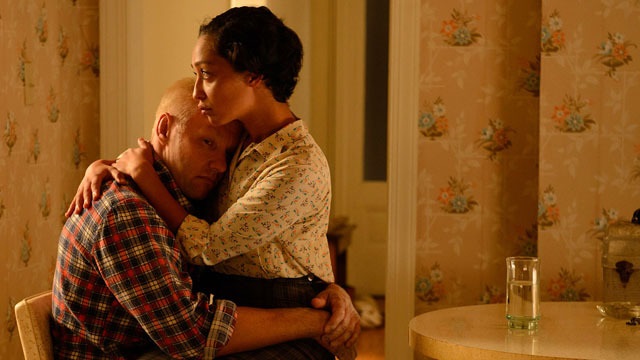Spoiler alert:
Nothing happens in this film.
 Let me begin this by saying that five years ago, I saw the documentary for the case of Loving v. Virginia on HBO–“The Loving Story.” The documentary was engaging, well edited, and held my attention. It is without question how important this case was, and the Loving couple who were the catalyst for change in the Constitution.
Let me begin this by saying that five years ago, I saw the documentary for the case of Loving v. Virginia on HBO–“The Loving Story.” The documentary was engaging, well edited, and held my attention. It is without question how important this case was, and the Loving couple who were the catalyst for change in the Constitution.
The film, however, gave their story in a very different light–a quite dull and dim one at that.
While colored, Mildred Loving was not considered black, as she was of both African American and Native American descent. This very particular difference is perhaps why the Lovings did not experience, let’s say, standard opposition from the state of Virginia during their initial years of marriage. The film shows the trials and tribulations that they had to endure, including Mildred spending a weekend in jail while pregnant, while her husband Richard spent just one night. They were exiled from the state of Virginia for twenty-five years, not to return together. While they are pulled from their bed in the middle of the night, this was perhaps the worst thing that happens to them. They aren’t verbally harassed or physically abused. A brick covered with a magazine piece based on the couple is gently placed on the seat of Richard’s car, but the window isn’t actually broken. There is a car chase scene that literally leads to nowhere. One of their three children is hit by a car, but he is only bruised up. For every moment where one might think that there was to be action, the audience is lead astray, as there is none to be found.
Both the character version of Richard and Mildred are dry and tight-lipped, requiring the talent of actors who can actually emote. It is with great sadness to report that neither Ruth Negga or Joel Edgerton have such talents.
While the audience clapped at the end of this film, I sat there bewildered and confused, apologizing to my date for even suggesting this insanely dry film. The story itself is great; Jeff Nichols failed at telling it.
I think that had the story focused upon Nick Kroll’s character–the ACLU lawyer Bernie Cohen, and how the case fell into his laps, what happened in the courts, and his fight to win this case. The only parts where the film was remotely engaging was when he was on the screen.
Or, another route could have been a “based on a true story” film, and had some realistic fiction thrown in to make it interesting. This film truly needed something, as the Lovings were basically props with nowhere to go.
Sad to say, this film gets two thumbs down.




